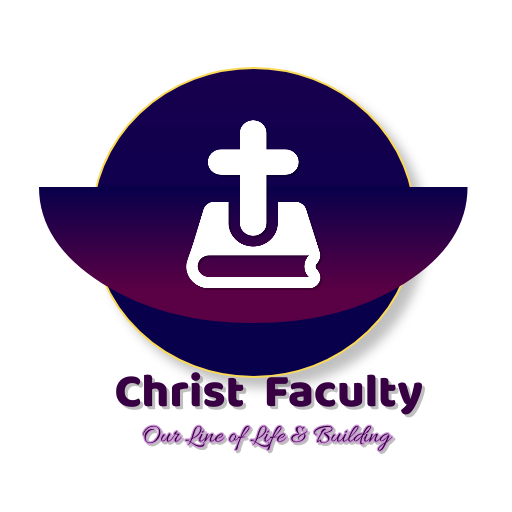Course Title: Biblical Theology
Course Description:
Biblical Theology is a course that explores the progressive revelation of God’s redemptive plan as it unfolds throughout the entirety of Scripture. Unlike systematic theology, which organizes theological topics topically, biblical theology focuses on understanding the Bible’s narrative and theological themes within their historical and literary contexts. This course examines how key themes such as covenant, kingdom, promise, and fulfillment are developed from Genesis to Revelation. Students will learn to trace these themes and understand how the Old and New Testaments are interconnected, highlighting the unity of the Bible as one coherent story centered on Christ.
Course Overview:
- Duration: Typically one semester (12-16 weeks)
- Format: Lectures, readings, discussions, thematic studies, and exams
- Prerequisites: None, though a basic knowledge of the Bible is beneficial
- Target Audience: Theology students, church leaders, Bible study leaders, and anyone interested in deepening their understanding of the Bible’s overarching narrative
Course Objectives:
By the end of this course, students will be able to:
- Understand the Nature and Purpose of Biblical Theology:
- Define biblical theology and distinguish it from systematic theology and other theological disciplines.
- Explain the significance of understanding the Bible as a unified narrative of God’s redemptive work.
- Trace Key Theological Themes Throughout Scripture:
- Identify and trace major biblical themes such as covenant, kingdom, sacrifice, atonement, and mission from the Old Testament to the New Testament.
- Understand how these themes reveal the character of God and His plan for humanity.
- Explore the Unity and Diversity of Scripture:
- Recognize the unity of the Bible despite its diverse literary genres, authors, and historical contexts.
- Demonstrate how different parts of Scripture contribute to the overarching narrative of redemption centered on Christ.
- Develop Skills in Thematic and Canonical Reading:
- Learn to read and interpret biblical texts in their literary, historical, and canonical contexts.
- Practice thematic reading by tracing the development of specific themes through various biblical books.
- Apply Biblical Theology to Contemporary Christian Life and Ministry:
- Reflect on how the grand narrative of Scripture informs personal faith and practice.
- Equip students to use biblical theology in teaching, preaching, and discipleship within the church.
Course Outline:
Week 1: Introduction to Biblical Theology
- Definition and scope of biblical theology
- Differences between biblical theology and systematic theology
- The importance of biblical theology for understanding Scripture
Week 2: The Story of Scripture: Creation, Fall, Redemption, and Restoration
- The overarching narrative of the Bible: creation, fall, redemption, and restoration
- Understanding the metanarrative of Scripture and its significance for biblical theology
- The centrality of Christ in the biblical narrative
Week 3: The Covenant Theme in Scripture
- The concept of covenant in the Bible: its definition and significance
- Major covenants: Adamic, Noahic, Abrahamic, Mosaic, Davidic, and the New Covenant
- How covenants reveal God’s relationship with humanity and His redemptive plan
Week 4: The Kingdom of God
- The theme of the kingdom of God in the Old and New Testaments
- The promise of a coming king and kingdom in the Old Testament
- Jesus’ teaching on the kingdom of God in the Gospels and its fulfillment in the New Testament
Week 5: The Presence of God: Temple and Tabernacle
- The theme of God’s presence with His people: Eden, the tabernacle, the temple, and Christ
- The significance of God dwelling among His people
- The fulfillment of the temple theme in the person of Jesus and the Church as God’s temple
Week 6: Sacrifice, Atonement, and Redemption
- The sacrificial system in the Old Testament: purpose and foreshadowing of Christ’s sacrifice
- The concept of atonement: substitution, ransom, and reconciliation
- How Christ fulfills the sacrificial system as the ultimate atonement for sin
Week 7: Promise and Fulfillment: Prophecy and Typology
- Understanding biblical prophecy and its fulfillment in Christ
- The role of typology in biblical theology: types of Christ, the Church, and eschatology
- Key Old Testament types and their New Testament fulfillment
Week 8: The People of God: Israel and the Church
- The theme of God’s chosen people: Israel in the Old Testament and the Church in the New Testament
- The relationship between Israel and the Church in God’s redemptive plan
- The continuity and discontinuity between the covenants
Week 9: The Mission of God: From Genesis to Revelation
- The mission of God and His people: from Abraham’s call to be a blessing to all nations to the Great Commission
- The role of Israel and the Church in God’s mission
- The eschatological fulfillment of God’s mission in the new heavens and new earth
Week 10: The Role of the Law and the Gospel
- The function of the Law in the Old Testament and its fulfillment in Christ
- The relationship between Law and Gospel: grace and truth
- How the Law points to the need for a Savior and the sufficiency of Christ’s work
Week 11: The Role of Wisdom and Prophetic Literature
- The place of wisdom literature (Proverbs, Ecclesiastes, Job) in biblical theology
- Prophetic literature: calls to repentance, promises of restoration, and visions of the future
- How wisdom and prophecy contribute to the understanding of God’s plan
Week 12: Eschatology: The Consummation of God’s Redemptive Plan
- The theme of eschatology in the Bible: end times, judgment, and hope
- The new heavens and new earth: God’s ultimate plan for creation
- How the Bible’s ending ties together the whole story of redemption
Week 13: Jesus in All of Scripture: A Christ-Centered Reading of the Bible
- Christ as the fulfillment of Old Testament promises, types, and prophecies
- How to read the Old Testament with a Christ-centered perspective
- The role of Jesus as the central figure in God’s redemptive narrative
Week 14: Applying Biblical Theology to Life and Ministry
- Practical applications of biblical theology in preaching, teaching, and discipleship
- Using biblical theology to address contemporary issues in the Church and society
- Developing a personal approach to studying and communicating the unified message of the Bible
Assessment Methods:
- Reading Assignments: Engaging with key texts in biblical theology and scholarly articles.
- Lectures & Discussions: Participation in class lectures and discussions to deepen understanding.
- Thematic Studies: Tracing biblical themes through individual and group projects.
- Research Papers: Writing papers that explore specific theological themes across the canon of Scripture.
- Examinations: Midterm and final exams assessing comprehension of biblical themes and the storyline of Scripture.
- Practical Projects: Developing teaching or sermon outlines that integrate biblical theology.
Recommended Texts:
- “According to Plan: The Unfolding Revelation of God in the Bible” by Graeme Goldsworthy
- “Biblical Theology: How the Church Faithfully Teaches the Gospel” by Nick Roark and Robert Cline
- “The Big Picture: Understanding the Storyline of the Bible” by Vaughan Roberts
- “The Kingdom of God and the Glory of the Cross” by Patrick Schreiner
This course on Biblical Theology is designed to help students understand the Bible as a unified story of God’s redemptive plan, equipping them to read and apply Scripture with a deep appreciation of its overarching themes and the centrality of Christ in all of Scripture.
Course Features
- Lecture 0
- Quiz 0
- Duration 14 weeks
- Skill level All levels
- Language English
- Students 165
- Certificate No
- Assessments Yes







